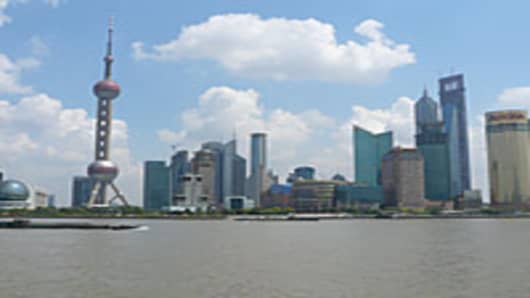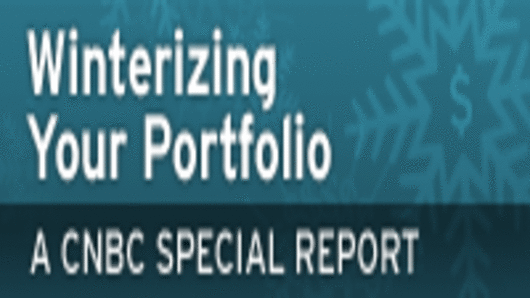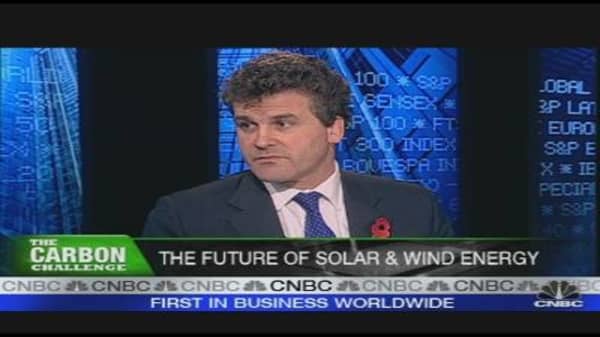As more nervousness creeps into the US stock market, investors are sharpening their look at overseas opportunities where growth is outpacing the US recovery.
While emerging and developed markets have largely kept pace with the US rally over the past seven months, there's growing belief that the two may diverge as the US faces an extended slow-growth period.
Consequently, advisors are making sure their clients are committing at least 20 percent of their portfolios to foreign markets, with about a quarter of that devoted to emerging markets.
"We think international should be a material component in portfolios. It's important for diversification," says Beth Larson, principal at Evermay Wealth Management in Washington, D.C. "It probably should be a larger component than many individual clients think it should be."
Investors looking for foreign exposure are turning to the swelling numbers of exchange-traded funds dedicated to those markets.
The funds are divided into several categories and allow investing in foreign markets as a whole, specific countries within the group, and particular sector plays that are focused on international markets. Emerging markets—China, India, Brazil and a slew of others—make up a significant and increasingly popular component within the foreign market group.
The gains so far have been impressive. For example, the Vanguard Emerging Markets Fund , one of the more heavily traded broad-based funds, is up 59 percent in 2009, while the Standard & Poor's 500 is up only about 16 percent over the same period.
Still, some analysts caution that the international market could be overheating and may face the same kind of pullback expected in the US. For that reason, portfolio managers say you shouldn't go overboard in loading up on international stocks.
"The important thing really is emerging market investments are part of a portfolio—they're never the whole portfolio," says Bob Jergovic, CIO at CLS Investments in Omaha, Neb. "Whether it's international investing in developed countries or emerging countries, it should always be always be a part of the portfolio, not all."
Jergovic advocates about a 30 percent portfolio allocation toward foreign markets, with half that to emerging countries. He favors broad plays in the area as well as specific ETFs that focus on Brazil and China.
Among his recommendations are an array of iShares funds: MSCI Emerging Markets Index; the S&P Latin America 40 Index; the MSCI Brazil Index and the FTSE/Xinhua China 25 Index.
China, in fact, makes up about 20 percent of all emerging market funds, cementing the country's status as the favorite in the group even though China ETFs are trading at a fairly expensive 18 times trailing earnings.
"We're starting to see so many of these developing markets becoming so large and sophisticated themselves that it's almost a misnomer to call them developing," Larson says.
ETFs, of course, are but one way to jump in; Larson uses managed funds from firms such as Manning and Napier, Thornburg and Oppenheimer as well. She favors the managed funds approach because they provide stock-picking expertise in the various countries to capitalize on specific growth areas.
For example, she cites companies such as Johnson and Johnson , and Microsoft as companies that are US-based but do much of their business in other markets and can be included in portfolios that capitalize on foreign growth.
But beyond stocks and funds, some investors are paying attention to currency moves as the US dollar continues to languish against a basket of foreign denominations.
Appreciation of the yuan—the main currency in China—provides one such opportunity.
Because China's trade surplus is likely to continue to increase, the yuan probably will gain value against its foreign competitors. Consequently, investing in Chinese companies, particularly those with strong cash positions, could be a good strategy.
"Although there are concerns that China's exports will suffer if the yuan increases in value, it is only a matter of time until China allows the yuan to re-appreciate," analysts at Continental Capital Advisors in New York wrote in a recent research note. "Buying Chinese equities, especially those with large cash balances as a percentage of market capitalization, is a great way to participate in the inevitable rise of the yuan."
Indeed, currency moves are one of the big underliers driving the emerging markets trade.
"Certainly we're in a time when there's fear of the US dollar," says Richard Kang, CIO at Emerging Global Advisors, a New York-based firm that runs a family of emerging market ETFs which focus on sector plays within the group rather than the countries themselves.
Kang says infrastructure, financial services and telecommunications will be the leading emerging market industries to provide value for investors.
Emerging markets are scary for investors because of their volatility, but Kang says using ETFs helps reduce some of that fear while providing easy liquidity in case investors need cash.
The firm's leading fund is the Emerging Global Shares , a broad-based ETF which has been around since July and is up more than 14 percent since its inception.
"We believe investors want security. Emerging markets are risky but we believe investors are looking for the security of big names with big liquidity," Kang says. "Markets go up and markets go down, but if you can't access capital when you want it that's a real problem."






